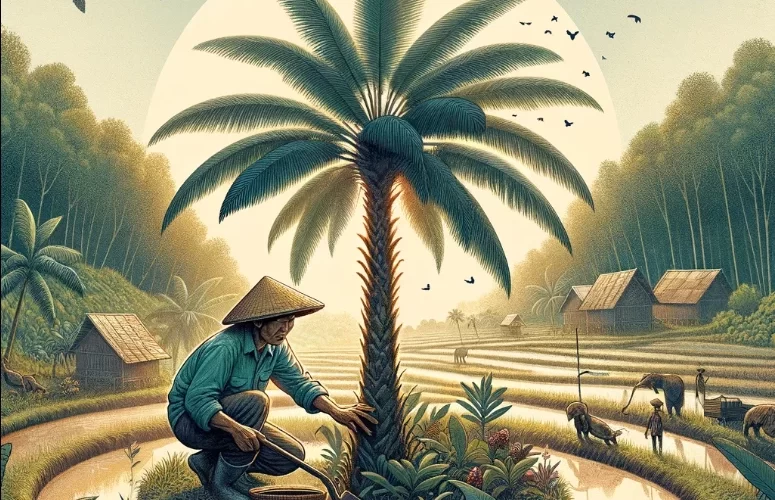Tracing back centuries, palm oil cultivation has been integral to the economies and cultures of Malaysia and Indonesia. Since the establishment of the first plantations in Malaysia in the late 19th century, these two nations have risen to become the world’s largest palm oil producers.
The Dual Impact of Oil Palm Plantations
While monoculture palm oil plantations can pose ecological challenges, their economic impact is undeniably positive. Millions find employment and income through these plantations, making palm oil a crucial export for both Malaysia and Indonesia.
Smallholder Farmers: The Backbone of Palm Oil Production
In Malaysia and Indonesia, smallholder farmers, numbering 3.5 million in Malaysia and 2.6 million in Indonesia, are pivotal in palm oil production. These farmers, managing plantations usually smaller than 5 hectares, contribute significantly to the industry. They also play a crucial role in local socio-economic development, having helped reduce Malaysia’s poverty from 50% in the 1960s to 5% today.
The Influence of RSPO and MSPO on Smallholder Farmers
Organizations like the Roundtable on Sustainable Palm Oil (RSPO) and the Malaysian Sustainable Palm Oil (MSPO) have been influential in improving smallholder farmers’ socio-economic conditions. These certification schemes offer training, support, and better market access, leading to higher incomes and living standards for certified farmers.
The MSPO Advantage
MSPO stands out for its inclusivity and affordability, particularly for smallholder farmers. Unlike the voluntary RSPO, about 96% of Malaysian palm oil plantations, many run by smallholders, are now MSPO-certified. This scheme works closely with state governments to address land issues and enhance traceability in the supply chain.
Future Prospects for Smallholder Farmers
Smallholder farmers face uncertainties due to fluctuating palm oil prices, competition from other oils, environmental pressures, climate change, and diseases. Yet, the growing demand for sustainable palm oil presents new opportunities. Certification can lead to better market access and higher product prices.
Supporting Smallholder Farmers: The Role of Governments and Stakeholders
To harness these opportunities, governments and industry stakeholders must support smallholder farmers by providing access to land, credit, and technical assistance, and aiding in sustainable certification.
Addressing Climate Change and Market Competition
Climate change poses a significant challenge for smallholders, as extreme weather can damage crops and reduce yields. Competition from other vegetable oils also pressures palm oil prices. However, the increasing demand for sustainable palm oil opens doors for certified smallholders to thrive.
Conclusion: Empowering Smallholders for a Sustainable Future
The success of smallholder palm oil farmers is crucial not just for the industry but for the broader socio-economic landscape of Malaysia and Indonesia. With the right support and sustainable practices, these farmers can continue to be a driving force in the palm oil sector, balancing economic growth with environmental stewardship.
For more news click thebritaintimes.co.uk
